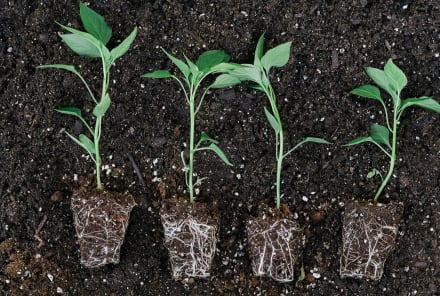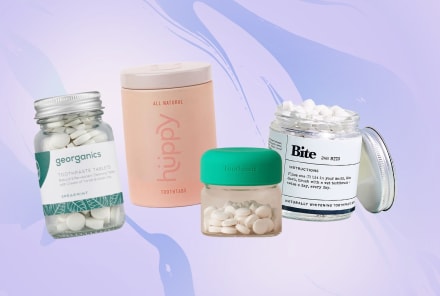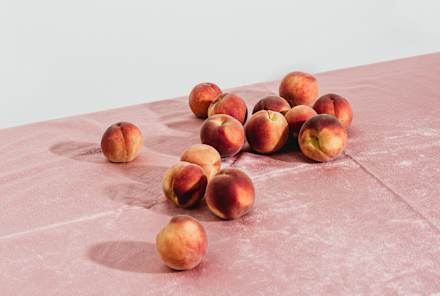Advertisement
How COVID-19 Is Changing My Perspective On Sustainable Living

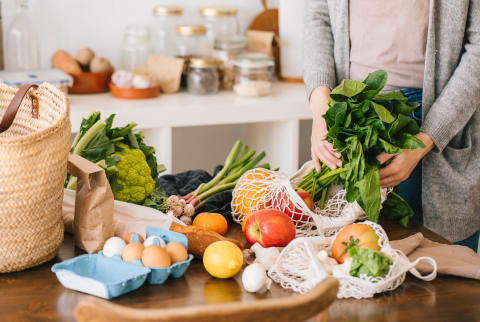
Since I first adopted it four years ago, my low-waste lifestyle has given me many gifts: It's helped my work as a dietitian by reminding me that real, whole foods that aren't wrapped in plastic are the healthiest for our bodies and the planet. It has made me a more thoughtful consumer on all fronts, and supporting small, local businesses that have big hearts and smaller footprints feels really good. Finally, it's given me purpose and motivation to use my voice for good. In spreading awareness of how low-waste living can improve health and happiness, I've built my own business and found my niche.
But the most important lesson I've picked up from my low-waste lifestyle? That one didn't come until the COVID-19 pandemic.
What happens when life gets in the way of low-waste.
I had started to loosen up on my virtually plastic-free life when I had my first baby earlier this year. I went into motherhood with every intention of sticking with it: I even packed glass jars, bamboo silverware, "naked" (aka loose) snacks, reusable coffee cups, and leakproof underwear in my hospital bag. And then, after 23 hours of labor, my husband and I found ourselves presented with a hummus platter wrapped in plastic wrap and sitting on Styrofoam plates with plastic silverware.
I've always approached low-waste living from a nonjudgmental standpoint, and I never shamed or thought less of people who didn't do things the same way I did. And as much as I tried to apply this kindness to myself, I inevitably judged every bit of waste I couldn't or didn't avoid. This time was different. My husband fed me the carrots and hummus while I nursed our baby and, to my surprise, I was OK with it.
Those first few weeks after having a baby were a whirlwind of emotions (happy, sad, overwhelmed) and utter exhaustion. I found myself in survival mode. I didn't have the energy to judge myself. Instead, I accepted that there are times when making purchases out of convenience makes sense. I wasn't being lazy. Rather, I was making sure that I had nourishing food regardless of the packaging it came in. When my parents ordered groceries delivered in plastic bags and takeout food in plastic containers, I thanked them from the bottom of my heart and gobbled down the food with gratitude.
I trusted that circumstances would change and I'd soon be able to return to my old ways. And then COVID happened. On my first coronavirus-era shopping excursion, I was too nervous to go anywhere near the bulk section. I wiped down the cart with a single-use wipe; stowed my produce, nuts, seeds, whole grains, and bread in single-use plastic bags; and got out of there.
Afterward, I felt an unbelievable wave of sadness and guilt. I'd long been making the case that buying in bulk, shopping naked, and avoiding plastic was safe and healthy—and here I was avoiding loose produce and creating more plastic waste during one shopping trip than I normally would have created in months. Was I officially a total fraud? Could I still claim that I lived a low-waste lifestyle? Has the plastic industry won?
Limiting plastic use is so important, but it's not the end of the conversation.
In the weeks that followed, I had to take a few steps backward and start thinking as I had at the beginning of my low-waste journey. I observed the waste my family and I had been producing and instead of getting discouraged by it, I got curious and asked questions: What am I throwing away and recycling the most? Did I really need that item?
I was honest with myself about whether I could avoid certain kinds of waste at this point in time, and I accepted when the answer was no.
In backtracking to my earlier ways, I remembered something: Low-waste living isn't only about reducing waste. It's a framework. It's a way of approaching life that supports a simpler, more sustainable, more mindful way of being—in whatever environment we find ourselves in.
Whether we like it or not, we are always constrained by our circumstances. So during these unprecedented times, my life will inevitably look different. There are sacrifices I will have to make because I lack access to my usual options. And I can't forget that when deciding how "sustainable" something is, there's always more to consider than plastic.
My new take on truly sustainable living.
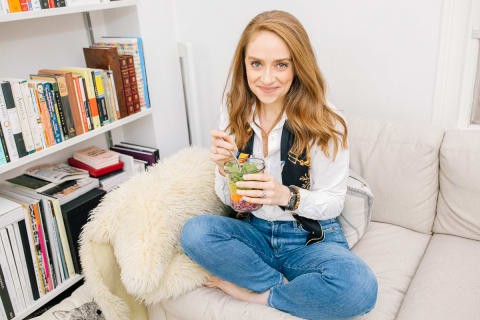
This pandemic has taught me that while there will come times when I'm producing more waste than I'd like, I can always adapt and just do the best I can. In that way, my low-waste lifestyle actually prepared me for this crisis. It's taught me to be self-sufficient, resilient, and resourceful.
While I still find my mind racing with negative thoughts and judgments from time to time, I'm trying to catch myself. Then, I remember that those thoughts are just another form of waste that I don't have space for right now.
